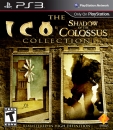GameOver22 said:
Ssenkahdavic said:
GameOver22 said:
Very true. The problem I've always had with Ockham's razor is that the simpler explanation is not necessarily the better explanation. The only place where Ockham's razor makes sense is in a system that appears as if it was designed (a system that is highly ordered with no extraneous parts). If there are extraneous parts, Ockham's razor can't be used because these parts might attach onto the simpler explanation and make it more complex.
Ockham's razor itself makes some fundamental assumptions, but the assumptions are not necessarily true. For that reason, I would say Ockham's razor is useful, but hardly foolproof. It should be used carefully, but I usually have a hard time understanding when it is actually applicable.
|
And the best part of all of this is if you use the principle of Ockham's Razor to justify evolution. What do you think is the simplest explanation?
That the pattern of evolution is GODs plan. While I might not agree with this, it can definitely be in the realm of possibility. Is this the best explanation? Not at all, but it is probably the simplist. I am also very sure that Wiliam of Ockham did not mean for his principle to be used in this way. His way would be more of: How are were here through evolution or GOD? GOD because its a much simplier explanation. Part of why he said "God's existence cannot be deduced by reason alone."
|
I'm not quite sure I understand your point, but I will say a few things.
Biologists wouldn't use Ockham's razor to justify evolution. They would use the evidence that has been accumulated through experiments. However, they would use Ockham's razor to justify excluding God from the explanation. The point I was making, and you might be driving at this point as well, is that the proper use of Ockham's razor really requires a huge amount of knowledge about the subject in question.
As as example, take the question of human origins prior to Darwin's theory of evolution. Even in Ockham's time, there would have been any number of theories (not talking scientific theories here). Philosophers as far back as ancient Greece produced ideas very similar to Darwin's theories, but they didn't have the evidence to support them. On top of that, you have any number of theories, such as "We popped into existence five minutes ago". In this type of environment, it is difficult to apply Ockham's razor because you have a lot of theoretical arguments but no real way to assess the truth value of these arguments. In these types of situations, the apllication of Ockham's razor would mostly likely result in falsehoods because the only thing we could assess would be theoretical complexity.
Point being, if we thought real hard, we could probably come up with an argument explaining human origins that is theoretically less complex than Darwin's theory of evolution. The problem with this type of explanation is that it would not take into account the evidence we have accumulated through scientific investigations.
Also, while my knowledge of Okham is limited, I wouldn't be surprised if the quotation, "God's existence cannot be deduced by reason alone", is made in reference to the ontological argument.
|
Worth a read on the subject: http://plato.stanford.edu/entries/ockham/
For Ockham, the only truly necessary entity is God; everything else, the whole of creation, is radically contingent through and through. In short, Ockham does not accept the Principle of Sufficient Reason.
As for using the principle, it requires two arguments that both could have the same outcome. IE: There is a loud Sound. 1) A car hit a tree. 2) A car hit a mailbox, spun out, went through my neighbors yard and hit his house. Which is simplier? Ockham said many times that the answers his principle brought you too were not always the correct ones. Also, Ockham did believe in unverifiable outcomes as well (GOD, divine intervention, etc) The Razor is pure Philosophy, but Philosophy that has very many uses.
Using the Razor to purely deduce if Evolution vs. Divine Will lead to human creation, Divine will would win. My point above was that If you used the Razor to explain Evolution, GOD being the cause of Evolution might be picked, as it is the simplest explanation. This was to my earlier comment about why the two cannot be melded into one? Why must one completely negate the other? I am a Scientist and we should not discount anything. God cannot be a theory (due to the existence not being falsifiable) but that does not mean that the idea of should be discounted in the Theory of Evolution discussion.
It is also interesting to note that Darwin would be remembered today not as a Biologist, but as a Geologist if not for his work On the Origin of Species by Means of Natural Selection.






























































